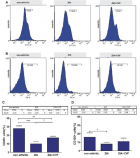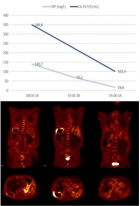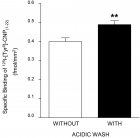About University of Nigeria Nsukka
University of Nigeria Nsukka
Articles by University of Nigeria Nsukka
Knowledge, attitude and practice towards hypertension among patients receiving care in a Nigerian Hospital
Published on: 29th September, 2020
OCLC Number/Unique Identifier: 8677986597
Background: Poor knowledge about hypertension can lead to poor attitude towards the disease which may directly affect patients self-care practices towards hypertension.
Objective: This study aimed to assess the knowledge, attitude and practice towards hypertension of hypertensive patients receiving care in Kogi state Specialist hospital, Lokoja, Kogi state Nigeria.
Methods: This was a cross sectional study conducted among Hypertensive patients receiving care in the Kogi State Specialist Hospital in Lokoja, Kogi state. All hypertensive patients visiting the Kogi State Specialist Hospital during the period of study and have given consent were allowed to participate in the study. A well designed questionnaire was used to collect patients soci-demographic and clinical variables. Also, a validated questionnaire was used to assess patients Knowledge, attitude and practice towards hypertension. Data were analysed using the Statistical Package for Social Sciences (SPSS for windows, Version 16.0. SPSS Inc. 2007.Chicago, USA) software. Continuous data were presented as mean± standard deviation while categorical data were presented as percentages and frequencies. Chi square and correlation test was also used to examine association between the variables in the data collected.
Results: A majority of the patients were aged 46-55 years 89 (27.5%), while almost half of the patients were males 161 (54.6%). About half of the patients 141 (43.5%) were selfemployed while a majority of the patients had at least a tertiary education 173 (53.4%). Only 4 (1.2%) of the patients reported that they had no formal education. About 60% of the patients reported to have had hypertension for 6-10 years while only 170 (57.4%) of the patients reported not to have any family history of hypertension. Also, only half of the patients 164 (50.6%) had their blood pressure controlled. Only one quarter of the patients had good knowledge and attitude towards hypertension. Also, only 4 (1.3%) patients had a good practice towards hypertension. There is a significant positive correlation between knowledge and attitude (r = 0.287, p < 0.001). Also, there is a fair positive correlation between Knowledge and practice (r = 0.254, p =
Identification and resolution of drug therapy problems among hypertensive patients receiving care in a Nigerian Hospital - A pilot study
Published on: 1st October, 2020
OCLC Number/Unique Identifier: 8677986406
Background: An event involving drug therapy that actually or potentially interfers with the desired health outcomes is known as drug therapy problem.
Objective: The study aimed to identify and resolve potential drug related problems encountered among adult hypertensive patients receiving care in a Nigerian Tertiary Hospital. Methods: This was a prospective cross sectional study. The data were collected from the patients’ medical records using the Pharmaceutical Care Network Europe (PCNE) Classification tool Version 6.2 (PCNE, 2010). For each of the 171 medical records, the DTPs experienced within the study period were identified. Data were analyzed using the IBM Statistical Product and Service Solutions (SPSS) for Windows, Version 21.0 (IBM Corp, Version 21.0, and Armonk, NY, USA).
Results: Majority of the patients were above 65years of age 64(37.4%), while about half of the patients were females. A total of 644 drug therapy problems were identified. The major cause of DTP was prescribing error 189(29.3). Other causes of drug therapy problem identified in this study were inappropriate drug selection 122(18.9), no indication for drugs 52(8.1), inappropriate drug combination 87(13.6), new indication presented 61(9.5), dose too high 62(9.6), dose too low 44(6.8), wrong drug taken/administered 27(4.2). Majority of the interventions made were accepted 586(91.0%) while only 3(0.5%) of the interventions made were not accepted.
Conclusion: This study demonstrates that a pharmacist, with adequate training and support can play a vital role in identifying and resolving drug therapy problems. Also, there is a need for an educational intervention among prescribing physicians to update them regularly on hypertension guidelines.

HSPI: We're glad you're here. Please click "create a new Query" if you are a new visitor to our website and need further information from us.
If you are already a member of our network and need to keep track of any developments regarding a question you have already submitted, click "take me to my Query."


















































































































































